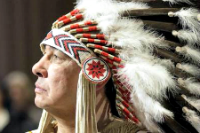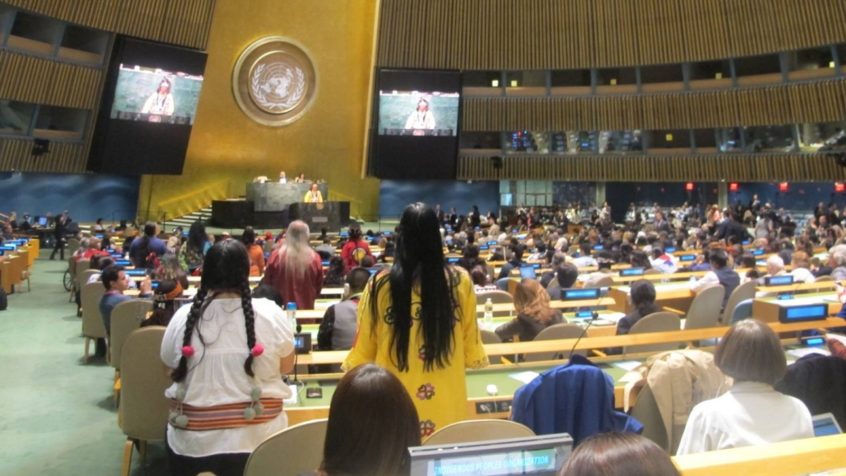Indigenous Peoples and the Post-2015 Development Agenda
Despite many of the successes of the MDGs, they have not managed to fully address the values and principles outlined in the Millennium Declaration, particularly in relation to human rights and equality. Addressing inequalities in the post-2015 development agenda means looking at both equality of opportunities and outcomes (or lack thereof), and entrenched structural factors, that perpetuate various forms of inequalities such as discrimination based on ethnicity, gender, age, location, etc.
In the latest report of the State of the World’s Indigenous Peoples, it is noted that, “Indigenous peoples face systemic discrimination and exclusion from political and economic power; they continue to be over-represented among the poorest, the illiterate, the destitute; they are displaced by wars and environmental disasters; indigenous peoples are dispossessed of their ancestral lands and deprived of their resources for survival, both physical and cultural; they are even robbed of their very right to life.” It is therefore critical that the rights and needs of indigenous peoples are discussed and addressed in the next development agenda.
From 27 November to 19 December 2012, the Secretariat of the Permanent Forum on Indigenous Issues and UNICEF co-moderated an e-discussion* on the theme “Indigenous Peoples and Inequality” in the framework of the global thematic consultation on “Addressing Inequalities” in the Post-2015 Development Agenda. Here is the discussion website: http://www.worldwewant2015.org/node/284745
The key-message highlighted by indigenous peoples is that the implementation of a human rights-based approach to development should take into account issues of equality and sustainability, and endorse the fundamental concept of development with culture and identity. Participants to the e-discussion also underlined that the UN system should reach out and engage in partnerships with indigenous peoples to ensure their effective participation in the post-2015 development agenda and any emerging sustainable development goals. The inputs should be guided by the principles of equality and non-discrimination and include voices from indigenous women, youth and children and persons with disabilities.
Other main priority areas identified by participants at the on-line consultation are the following:
1. Recognition of indigenous peoples at national and international levels;
2. Recognition of indigenous peoples’ collective rights, in particular the right to land, territories and natural resources;
3. Enactment of intercultural and cultural-sensitive policies at the national level, especially in the areas of education and health;
4. Prioritization of the special conditions and needs of indigenous women, children, youth and indigenous persons with disabilities;
5. Recognition of culture as the 4th pillar of sustainable development, and the inclusion of the indigenous view of development with culture and identity;
6. Enactment of the right to free, prior and informed consent in all matters affecting indigenous peoples;
7. Establishment of partnerships for development issues relating to indigenous peoples.
____________________________________________________________
*The online platform for the e-discussion on addressing inequalities was launched at the beginning of October with the first discussion focusing on gender inequality, followed by a discussion on gender-based violence on 17 October. The e-discussions are a series of time-bound, moderated dialogues designed to seek the views of a broad range of stakeholders including governments, UN and other development agencies, civil society, philanthropic organizations, the private sector, and the general public. The online platform for the e-discussion on addressing inequalities was launched at the beginning of October with the first discussion focusing on gender inequality, followed by a discussion on gender-based violence on 17 October. The website
http://www.worldwewant2015.org/inequalities is open to the public, following a simple registration process.


